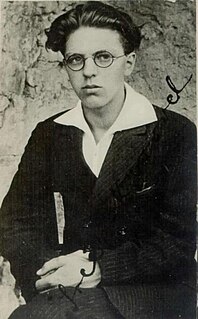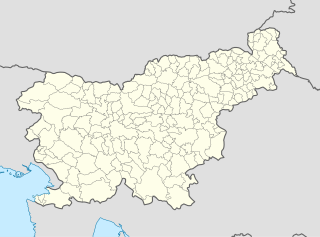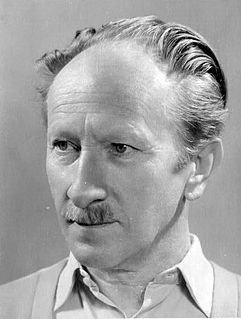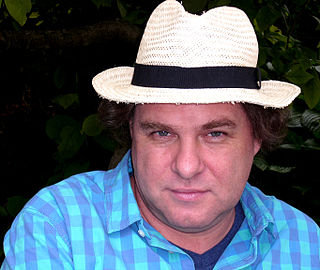Related Research Articles

Maribor is the second-largest city in Slovenia and the largest city of the traditional region of Lower Styria. It is also the seat of the City Municipality of Maribor, the seat of the Drava statistical region and the Eastern Slovenia region. Maribor is also the economic, administrative, educational, and cultural centre of eastern Slovenia.
The history of Slovenia chronicles the period of the Slovenian territory from the 5th century BC to the present. In the Early Bronze Age, Proto-Illyrian tribes settled an area stretching from present-day Albania to the city of Trieste. Slovenian territory was part of the Roman Empire, and it was devastated by Barbarian incursions in late Antiquity and Early Middle Ages, since the main route from the Pannonian plain to Italy ran through present-day Slovenia. Alpine Slavs, ancestors of modern-day Slovenians, settled the area in the late 6th Century A.D. The Holy Roman Empire controlled the land for nearly 1,000 years, and between the mid 14th century and 1918 most of Slovenia was under Habsburg rule. In 1918, Slovenes formed Yugoslavia along with Serbs and Croats, while a minority came under Italy. The state of Slovenia was created in 1945 as part of federal Yugoslavia. Slovenia gained its independence from Yugoslavia in June 1991, and is today a member of the European Union and NATO.

Franz Miklosich was a Slovene philologist.

Rudolf Maister was a Slovene military officer, poet and political activist. The soldiers who fought under Maister's command in northern Slovenia became known as "Maister's fighters". Maister was also an accomplished poet and self-taught painter.

Nogometni klub Maribor, commonly referred to as NK Maribor or simply Maribor, is a professional football club based in Maribor, Slovenia, that competes in the Slovenian PrvaLiga, the top tier of Slovenian football. Nicknamed "The Purples", the club was founded on 12 December 1960. They are regarded as a symbol of Slovenian football, particularly in their home region of Styria in northeastern Slovenia.

Srečko Kosovel was a Slovenian poet, now considered one of central Europe's major modernist poets. He was labeled an impressionistic poet of his native Karst region, a political poet resisting forced Italianization of the Slovene areas annexed by Italy, an expressionist, a dadaist, a satirist, and as a voice of international socialism, using avant-garde constructivist forms. He is now considered a Slovenian poetic icon.

Nogometni klub Olimpija Ljubljana, commonly referred to as Olimpija Ljubljana or simply Olimpija, is a professional association football club, based in the city of Ljubljana, Slovenia. The club competes in the Slovenian PrvaLiga, the country's highest football division.

Podlehnik is a settlement in the Haloze Hills in eastern Slovenia. It is the seat of the Municipality of Podlehnik. The area traditionally belonged to the region of Styria. It is now included in the Drava Statistical Region.

Drago Jančar is a Slovenian writer, playwright and essayist. Jančar is one of the most well-known contemporary Slovene writers. In Slovenia, he is also famous for his political commentaries and civic engagement.

Edvard Kocbek was a Slovenian poet, writer, essayist, translator, member of Christian Socialists in the Liberation Front of the Slovene Nation and Slovene Partisans. He is considered as one of the best authors who have written in Slovene, and one of the best Slovene poets after Prešeren. His political role during and after World War II made him one of the most controversial figures in Slovenia in the 20th century.

Slovene Lands or Slovenian Lands is the historical denomination for the territories in Central and Southern Europe where people primarily spoke Slovene. The Slovene Lands were part of the Illyrian provinces, the Austrian Empire and Austria-Hungary. They encompassed Carniola, southern part of Carinthia, southern part of Styria, Istria, Gorizia and Gradisca, Trieste, and Prekmurje. Their territory more or less corresponds to modern Slovenia and the adjacent territories in Italy, Austria, Hungary, and Croatia, where autochthonous Slovene minorities live. In the areas where present-day Slovenia borders to neighboring countries, they were never homogeneously ethnically Slovene.

Family Moving Day is the seventh book in the Beechwood Bunny Tales series. It was published in 1992 by Éditions Milan in France, and Gareth Stevens in the United States. In the book, the Bellflower family of rabbits move to a new house on the other side of the hill near which they live. Everyone is delighted to go, except Periwinkle, who does not easily adapt to new settings. In response, he runs away, and it is up to his father Bramble to find him.
The mass media in Slovenia refers to mass media outlets based in Slovenia. Television, magazines, and newspapers are all operated by both state-owned and for-profit corporations which depend on advertising, subscription, and other sales-related revenues. The Constitution of Slovenia guarantees freedom of speech and Slovenia ranked 40th in the 2016 Press Freedom Index report compiled by Reporters Without Borders, falling by 5 places if compared to the 2015 Index.

The 2013 Winter Universiade, the XXVI Winter Universiade, was a winter multi-sport event which took place in Trentino, Italy between 11 and 21 December 2013.

Dean Komel is a Slovenian philosopher.
The Venetic theory is an autochthonist theory of the origin of the Slovenes that denies the Slavic settlement of the Eastern Alps in the 6th century, claiming that proto-Slovenes have inhabited the region since ancient times. Although it has been rejected by scholars, it has been an influential alternative explanation of the Slovenian ethnogenesis. During the 1980s and 1990s, it gained wide attention in Slovenia and the former Yugoslavia.

Marburg's Bloody Sunday was a massacre that took place on Monday, 27 January 1919 in the city of Maribor in Slovenia. Soldiers from the army of the Kingdom of Serbs, Croats and Slovenes, under the command of Slovene officer Rudolf Maister, killed between 9 and 13 civilians of German ethnic origin, wounding a further 60, during a protest in a city centre square. Estimates of casualties differ between Slovene and Austrian sources.

The Ljubljana Slovene National Theatre Opera and Ballet, or shortly Ljubljana SNG Opera and Ballet, is Slovenia's national opera and ballet company. Its seat is the Ljubljana Opera House at 1 Župančič Street in Ljubljana. The Ljubljana Slovene National Theatre Opera and Ballet was founded in 1918. It is now a subsection of the Slovene National Drama Theatre in Ljubljana (Slovensko narodno gledališče and has about 50 dancers. Since 2013, its director has been the lawyer Peter Sotošek Štular, and its artistic director the opera stage director Rocc.

Theodor Illek, is a poet, prose writer, visual artist, and playwright who focuses on the themes of migration, religion, and the issue of connecting art with science. He is a doctor in veterinarian medicine by training. Since 2007, he has been presenting his work both in Slovenia and abroad, namely in Russia, France, Germany, Israel, Austria, the Czech Republic, Bosnia and Herzegovina, Serbia, as the author of independent and group experimental projects implemented in the framework of a contemporary art society called Aggressive Theatre. He is also a co-founder of the same society and its president. Illek's poetry is published in the notable Slovenian and foreign magazines. His first work of poetry, called Sinapse, for which he received a scholarship from a fund for gifted high-school and university students, was published in 2003.

Cink is a remote abandoned settlement in the Municipality of Dolenjske Toplice in southern Slovenia. The area is part of the traditional region of Lower Carniola and is now included in the Southeast Slovenia Statistical Region. Its territory is now part of the village of Podstenice.
References
- ↑ "Maribor Uni". Archived from the original on 2008-03-27. Retrieved 2008-04-03.
| This Slovenia-related article is a stub. You can help Wikipedia by expanding it. |

